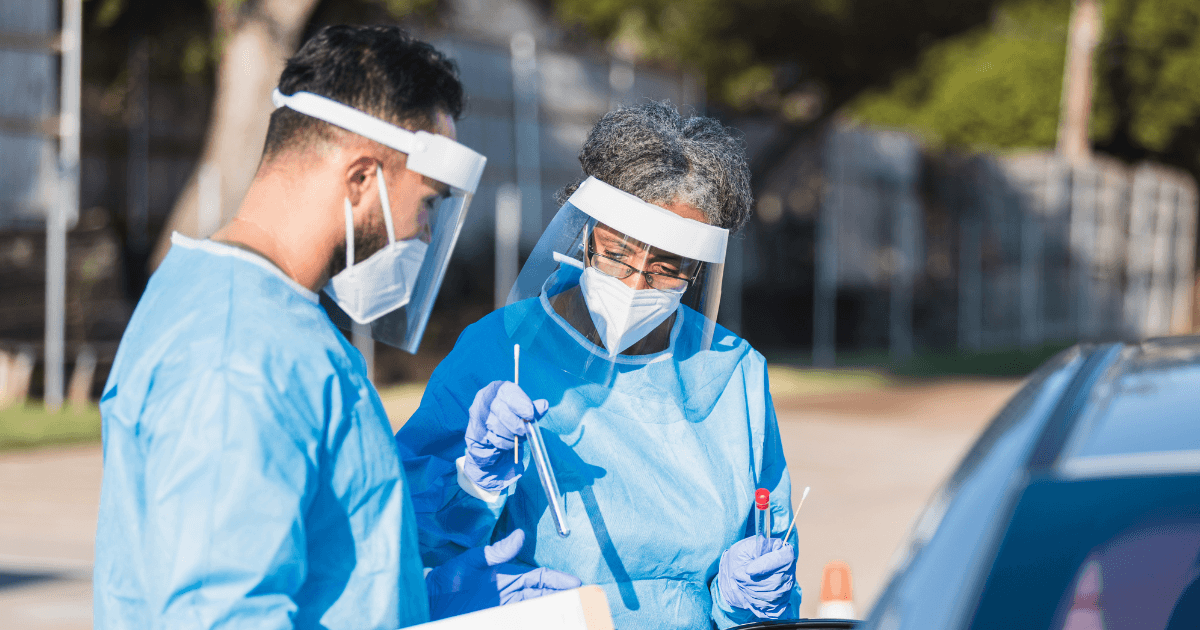Which COVID Vaccine Is Best For You? Learn About Each Type

4 Minutes

Team Curative

Apr 22, 2021
On December 14, 2020, Sandra Lindsay, a nurse at Long Island Jewish Medical Center in New York, became the first person to receive a COVID-19 vaccine outside of a clinical trial in the United States. Since then, as of April 21, 2021, more than 272 million vaccine shots have been administered across the country. That means roughly 26 percent of the total U.S. population (86.2 million people) has been fully vaccinated against COVID-19. If you have not yet received a vaccine, you may be wondering, “Which COVID vaccine is best for you?” First, let’s explore each option.
As of mid-February 2021, three COVID-19 vaccines had received Emergency Use Authorization by the United States Food and Drug Administration (FDA) — produced by Pzifer/BioNTech, Moderna, and Johnson & Johnson.
It is important to know that “All COVID-19 vaccines currently available in the United States have been shown to be safe and effective at preventing COVID-19,” according to the CDC.
In this blog post, we address what you need to know about the different vaccines being distributed and the importance of getting vaccinated with an available, authorized vaccine.
Types of COVID-19 Vaccines: Which COVID Vaccine Is Best For You?
In recent blog posts, we’ve explained in more detail how immunity and vaccines work, and the development process of the COVID-19 vaccines.
A quick review: The first time someone gets infected with SARS-CoV-2, the virus that causes COVID-19, it can take a few days or even weeks for their body to use its method of protection—the immune system—to fight against the infection. Subsequently, one’s immune system “remembers” the virus with the help of memory cells to better help to protect the body against future infections. Health experts are continuously learning more about how the body fights the novel coronavirus. The available COVID-19 vaccines help the body to develop immunity to the virus without getting infected with it, even if someone experiences symptoms similar to COVID-19.
Below, we share a brief overview of how each type of vaccine works against SARS-CoV-2.
mRNA vaccine: Examples include vaccines from Moderna and Pfizer. This type of vaccine contains viral materials from SARS-CoV-2 that give our cells instructions on how to produce a harmless protein that is unique to the virus. After our cells begin producing the harmless viral protein, our body works to destroy the genetic material thanks to our B-lymphocytes and T-lymphocytes (B & T cells). These cells then remember how to fight against the virus in the future.
Protein subunit vaccine: This type of vaccine contains harmless pieces (proteins) of SARS-CoV-2 instead of the entire virus. After this vaccine is administered, the body recognizes the protein as a foreign particle and utilizes T cells and antibodies to learn and remember how to fight the virus in the future.
Vector vaccine: Example includes Johnson & Johnson’s Janssen. This type of vaccine consists of inserting genetic material from SARS-CoV-2 into a different kind of weakened live virus, such as adenovirus, to work as a delivery system called a “viral vector”. Once the viral vector makes its way into our cells, the genetic material gives cells instructions on how to produce the S protein (spike protein) that is found in all human coronaviruses. Once our cells have made copies of the S protein, our immune system mounts a response with our B & T cells that will then remember how to fight against the virus in the future.
Answering the Question “Which COVID Vaccine Is Best For You?”
“I think, right now, the message really has to be that the vaccines that are authorized for use are authorized for use because they will provide significant protection against COVID-19 illness. And if you’re not vaccinated, you have no protection against COVID-19 illness,” said Glen Nowak, director of the Center for Health and Risk Communication at Grady College of Journalism and Mass Communication in Athens, Georgia.
Having so many companies developing and producing COVID-19 vaccines is making it easier for governments across the world to vaccinate as many people as possible. Ongoing research will continue to evaluate the performance of these coronavirus vaccines in the world.
Health experts are focusing on this simple advice: Take whichever vaccine is offered to you. As Emory University’s Professor Carlos del Rio stated, “the best vaccine is the one you can get into your arm.”
Find a COVID-19 vaccine near you.
Curative Inc. and its subsidiary, Curative Management Services LLC, engage with medical entities that provide vaccination services.
Sign up for our Newsletter
Table of Contents
Types of COVID-19 Vaccines: Which COVID Vaccine Is Best For You?
Answering the Question “Which COVID Vaccine Is Best For You?”








